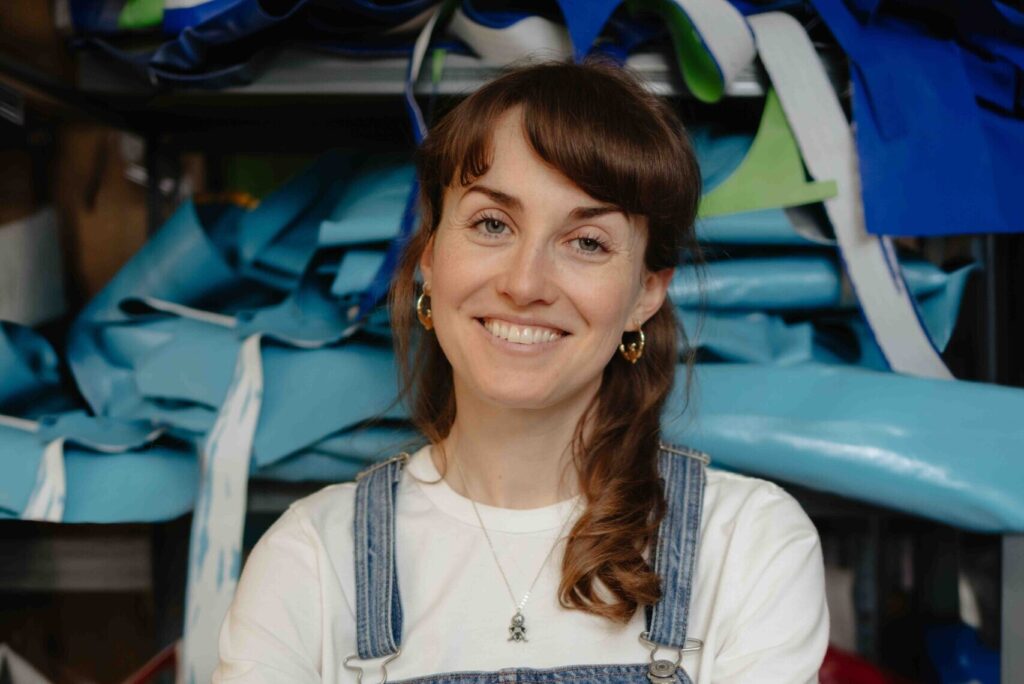Creating a simple, fully traceable white tee turned out to be a complex journey for ethical fashion designer Síofra Caherty. The white T-shirt, a staple in most wardrobes that sells over 2 billion pieces globally each year, is usually made of 100% cotton.
Belfast-based Caherty, known for her sustainable Jump The Hedges brand of bags made from reclaimed materials, wanted to extend the same traceability to her T-shirts. This seemingly effortless task evolved into a passion project that took two years to complete.
Caherty, who previously designed outdoor clothing at Adidas, has always been committed to traceability and minimising waste in ethical fashion. She believes knowing the full origin of the fabric used in your clothes is rare but essential. She devoted months to research and finally found a traceable European-grown fibre. She sourced the non-GMO Greek cotton, which can be traced back to the field and is cultivated using an efficient drip irrigation system.
The designer took the initiative to visit the yarn factory in northern Greece. She persuaded the factory manager to guide her through not just the yarn factory but also the neighbouring cotton fields and ginning mill. This endeavour provided her a complete insight into the process and allowed her to interact directly with the cotton farmers.
The yarn was knitted into fabric at a family-run factory in northern Portugal. Caherty describes the environment as reminiscent of an enthusiastic group of women stitching away with great camaraderie, bringing her T-shirt design to life.
The boxy women’s T-shirts were launched for sale in July 2024, priced at £45. The designer initially aimed for a completely transparent breakdown of costs, but due to personal time, travel, and effort she had to invest, final costs escalated. She decided on a price point that felt right to her and made the T-shirts accessible to a wider audience.
Despite the complexities of the project, Caherty is now considering expanding her sustainable clothing collection by adding sweaters made from regenerative cotton. She strongly believes that consumers do care about the origin of their clothes and want to know that everyone involved in its making is acknowledged, accounted for, and respected.
Photographed in her workshop, Síofra Caherty is an inspiring example of how change in the world of ethical fashion is possible with determination and a commitment to sustainability. All photography by Kate Donaldson.





